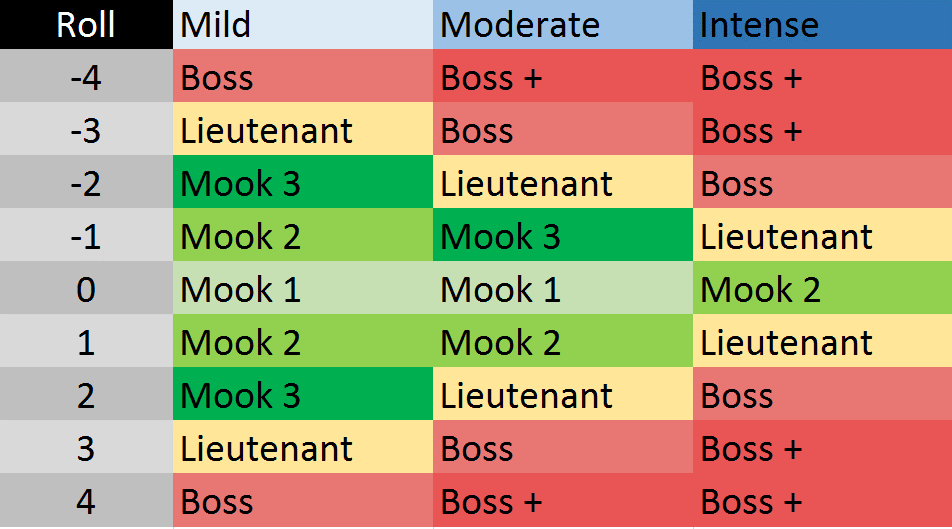NPCs and Obstacles / Fate Duo
So you have an idea of what's going on, but what's the opposition and who else in the scene?
As you can see, it is VERY easy to bunny-trail with Fate Duo, moving away from the original mission. Our characters have been sent to find someone, not determine the cause of these mysterious mists, and yet this is where we find ourselves.
It's important to note the difference between Original and Current storylines. The players may agree (either vocally or by retroactive realization that the original storyline is no longer the current storyline. They've focused their attention upon something else. Whether they get back to the original storyline is the grist of great stories!
NPC Types
Fate Core has a great handle on the "types" of NPCs one can meet in encounters, and this table offers a way to randomly generate them based on the "intensity" of the encounter. The descriptions below have links back to Fate Core's description of the NPC types.- Mook = Nameless NPC. Insignificant to the story, no name required! Come in three flavors: Average, Fair, and Good. These are also called Mooks. Mook 1 = Average, Mook 2 = Fair, and Mook 3 = Good Nameless NPCs.
- Lieutenant = Supporting NPC. Have names and a little more detail; similar to "lieutenants" in action/adventure stories.
- Boss = Main NPC. Closest thing to a PC, built very similar to PCs. Some may even be a little more powerful to make them more formidable. These should be full scale antagonists or similar major fixture in the story. A result of Boss + can indicate the Boss comes with a Surprise.
Obstacles
Obstacles should simply be scaled in terms of complexity and difficulty. In terms of Complexity:- Simple tasks are a one and done roll, and are not usually too involved.
- Complex tasks might require a challenge.
- If someone is working against you, it may be opposed or wind up as a contest.
- Automatic tasks don't require rolls, but may be worth mentioning
- Easy tasks are typically 2 or more less than the skill available
- Moderate difficulty are within one of the skill available
- Hard tasks are typically 2 or more higher than the skill available




Comments